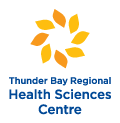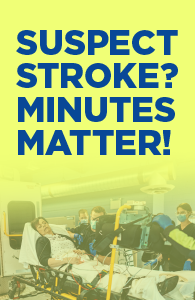Graduation Prompts Mixed Feelings

Graduation Prompts Mixed Feelings
For LaVerna Brown, of Fort Frances, successfully completing the four months long MOST (Moving on after Stroke) course, was something of a bitter sweet moment. After linking up by teleconference with groups in both Kenora and Thunder Bay for two hours twice weekly since mid April, she didn’t want it to end. “I would have happily kept going into September” she stated, “It feels like it ended too quickly!”
Fellow student Ken Morrison also enjoyed the bond that developed between the Fort Frances team and those they met using “skype-style” technology. “I was impressed by the unity and respect every one had for one another.” he commented. This was Ken’s second encounter with a focus group of fellow stroke survivors and their families. He had taken the shorter, local “Living with Stroke” course last fall. Both courses require considerable commitment on part of those enrolled and both LaVerna and Ken rose to the challenge.
During each new topical discussion, the two contributed their unique experiences, sharing their separate stroke stories, and gaining insight and encouragement from listening to others. For LaVerna, this was one of her favorite parts during the class times. Ken found the training on goal setting and follow through very helpful. His reason for this, he explained is that “Post stroke fatigue limits my ability to reach my goals, it affects my motivation.”(Post stroke fatigue has become a recognized factor which drains an individual’s energy and stamina).
But not just those taking the course benefitted from the class of 2016. Wilma Chapman arrived early for every meeting to set up the equipment and help distribute water to the participants. Long time volunteer Melvin Jourdain changed his role to trainer, as he taught Wilma all that is involved in standing by as volunteer for the group. Thunder Bay also rely on the volunteers in Fort Frances, as often technical difficulties have to be identified and solved at this end. “I really enjoyed the responsibility”, she enthused, “I like the routine of getting up to start a day where I’m doing something to help others”. The entire F.F. team remarked upon the friendliness of everyone taking part, and all agree they would highly recommend the course to stroke survivors and their families.
From: Healthcare News, Riverside Health Care
Written by: Marilyn Erwin, RN, Community Stroke Prevention Clinic
Addition:
In our challenging times of fiscally responsible and evidence-based health care, I think it is important to highlight the positive work we do in the eyes of clients.
The Moving on after Stroke program recently completed another session with Thunder Bay as host (facilitated by PTs Catharine Tombs and Kirsten Pavelich), Kenora and Fort Frances. This article in the Riverside newsletter highlights the value of this evidence-based self management and exercise program using videoconference technology from the client perspective.
I am truly grateful for the amazing work of Marilyn, the site coordinator in Fort Frances to assist with recruitment, implementation and media coverage! These programs do not run smoothly without talented facilitators; amazing volunteers; organized and patient telehealth coordinators, community partners, and administrative assistants and the support from administration.
Thank you to all of you.
Denise Taylor, PT, MPH, BScPT
Coordinator Rehabilitation Review, Physiotherapist, Professional Practice Leader, St. Joseph’s Care Group






